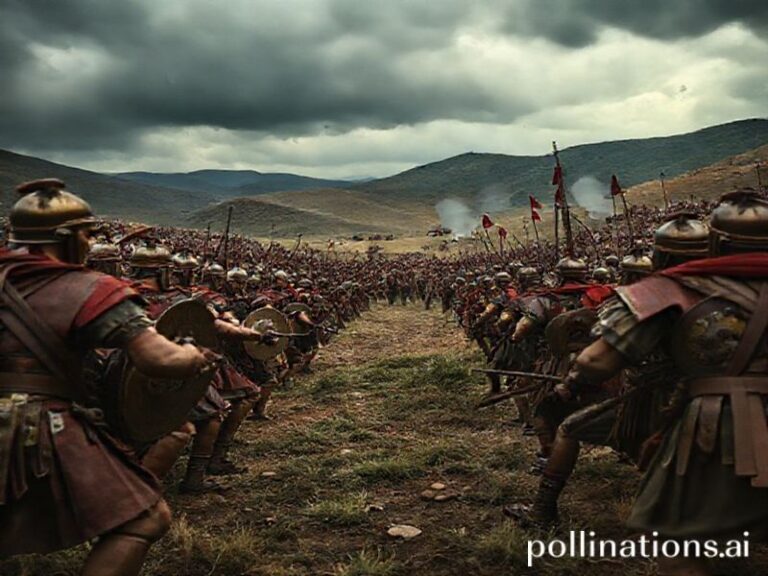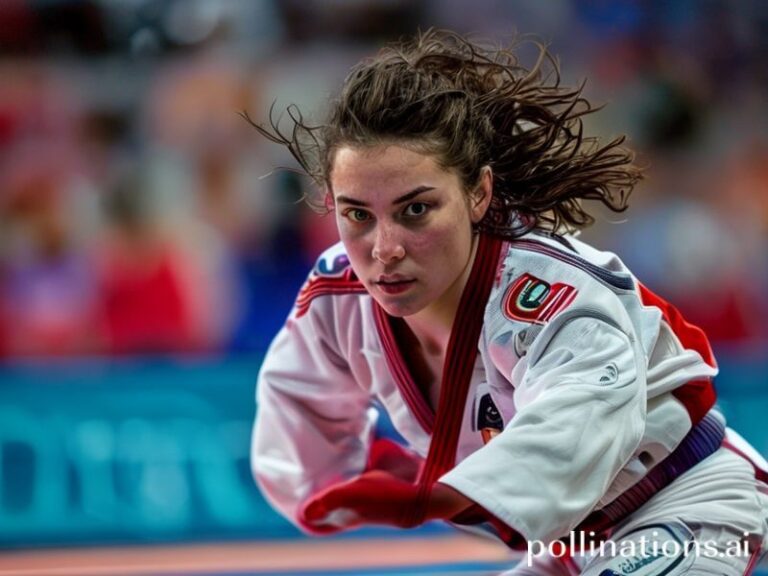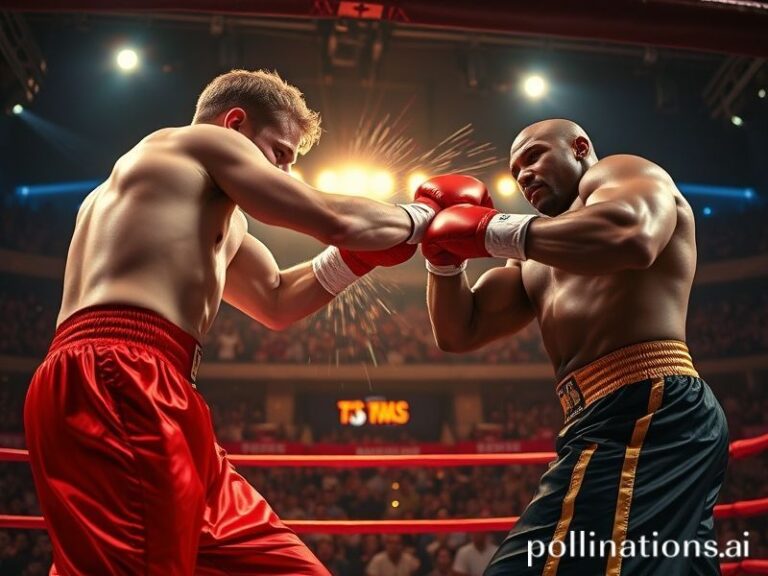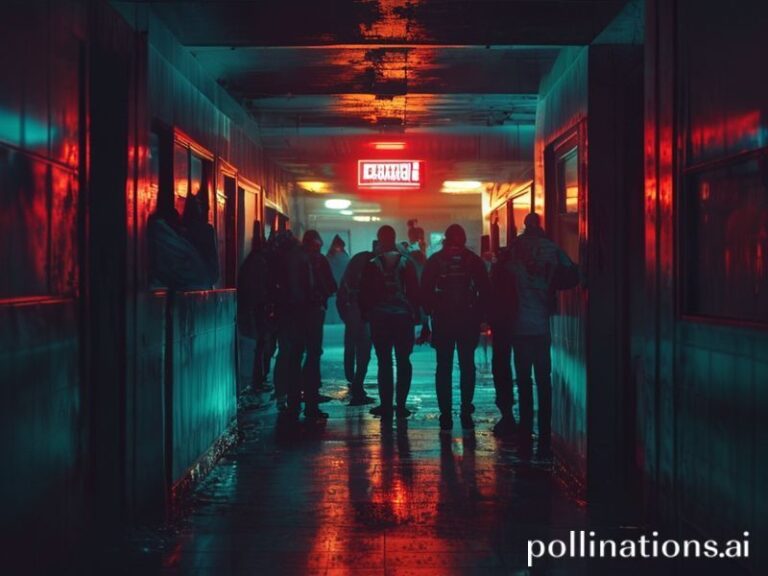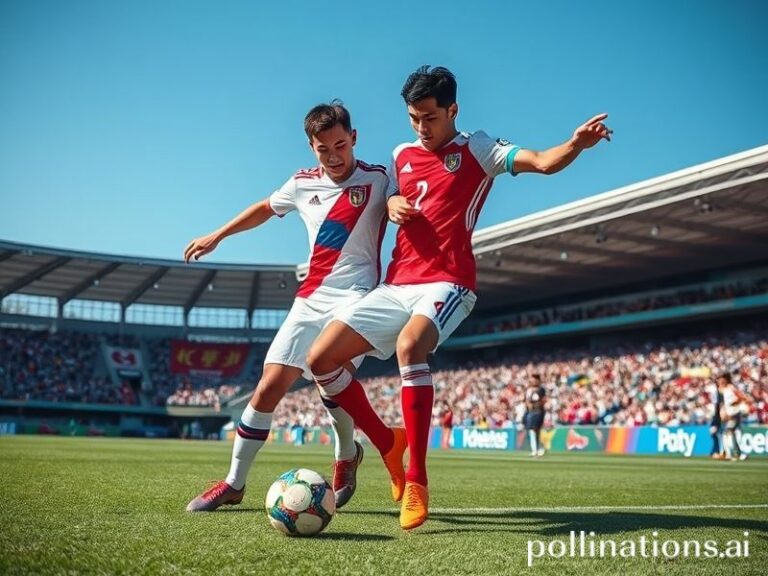Toronto Blue Jays: Canada’s Polite Baseball Rebellion and the World Series of Geopolitics
**The Maple Leaf’s Feathered Underdog: How the Toronto Blue Jays Became a Global Metaphor for Polite Rebellion**
From the outside, Canada looks like the planet’s designated driver: sober, courteous, and perennially apologizing for other nations’ drunken geopolitical antics. Yet every autumn, in a concrete saucer wedged beside a Toronto highway, the Blue Jays stage a low-volume insurrection against the natural order of baseball—a sport the rest of the planet treats with the same curiosity it reserves for American cheese and elective root canals.
Internationally, the Jays are less a team than a diplomatic concession: the only MLB franchise outside the Lower 48, paid in loonies, playing anthems in two languages, and politely reminding the hemisphere that empire can, in fact, be subcontracted. While Washington weaponizes the dollar and Silicon Valley weaponizes your attention span, Canada’s most belligerent export remains a bullpen that can’t find the strike zone but has universal health care.
The geopolitical subplot is delicious. Rogers Communications—Canada’s answer to Murdoch, if Murdoch were fined for bad manners—owns the club the way a casino owns your weekend: vertically, horizontally, and with a rewards card. Every broadcast beams back to Latin America, East Asia, and that one bar in Rotterdam that keeps the lights on for expats who still believe in aluminum bats. Dominican shortstops become temporary Canadians, Korean sluggers learn to say “sorry” after striking out, and the stadium’s beer prices perform the rare trick of making Swiss spectators feel fiscally prudent.
Meanwhile, the Jays’ periodic playoff runs serve as a Rorschach test for the world’s opinion of America itself. When they’re good, commentators hail it as proof that multilateralism works—an international roster pooling talent like a NATO of dingers. When they’re bad, the same pundits nod knowingly: even polite social democracies can’t manufacture bullpen depth any more than they can manufacture microchips or moral authority.
This year the club hangs around the wild-card race like a houseguest who’s missed the last bus: technically still welcome, increasingly awkward, and smelling faintly of opportunity. Vladimir Guerrero Jr.—son of a Hall-of-Famer, heir to a name that sounds like a Soviet space dog—swings a bat the size of Quebec separatism and connects just often enough to keep the metaphor alive. Across the diamond, Bo Bichette’s hair flows like global capital: untamed, glossy, and ultimately controlled by someone in Tampa.
The broader significance? In an era when supply chains fracture and borders harden, the Jays remain a floating free-trade agreement with cleats. Their roster is a walking IMF summit: 40-man, 12 passports, one shared Airbnb in Dunedin. Every dugout conversation is a miniature UN debate—minus the veto power and plus a sunflower-seed spit bucket. When the bullphone rings, it’s less a coaching decision than a sanctions package: whom to trust with the eighth inning, whom to exile to Triple-A Buffalo, a city that already feels like a reparations package for winter.
And yet the cosmic joke persists: a country that exports potash, palladium, and politeness must import its October drama from a sport invented by Civil War soldiers trying to avoid actual battle. While the planet warms, currencies burn, and democracies flirt with autocracy, 30,000 Canadians still wave foam fingers and do the wave—humanity’s literal attempt at synchronized denial.
Should the Jays somehow claw into the postseason, the world will witness the rare spectacle of Canadians trash-talking—a sound akin to librarians whispering threats in Esperanto. If they exit early, the nation will return to its default pastime: pretending hockey season never ended. Either way, the Rogers Centre roof will retract, the CN Tower will blink indifferently, and somewhere in a Berlin bar an exchange student will ask why the bases are loaded but nobody’s rioting.
Baseball, after all, is just crisis choreography with peanuts. The Blue Jays merely remind us that even in the gentler dominion, hope is a renewable resource—expensive, subsidized, and always traded at the deadline.


